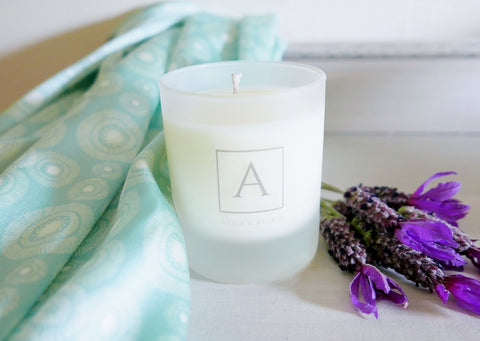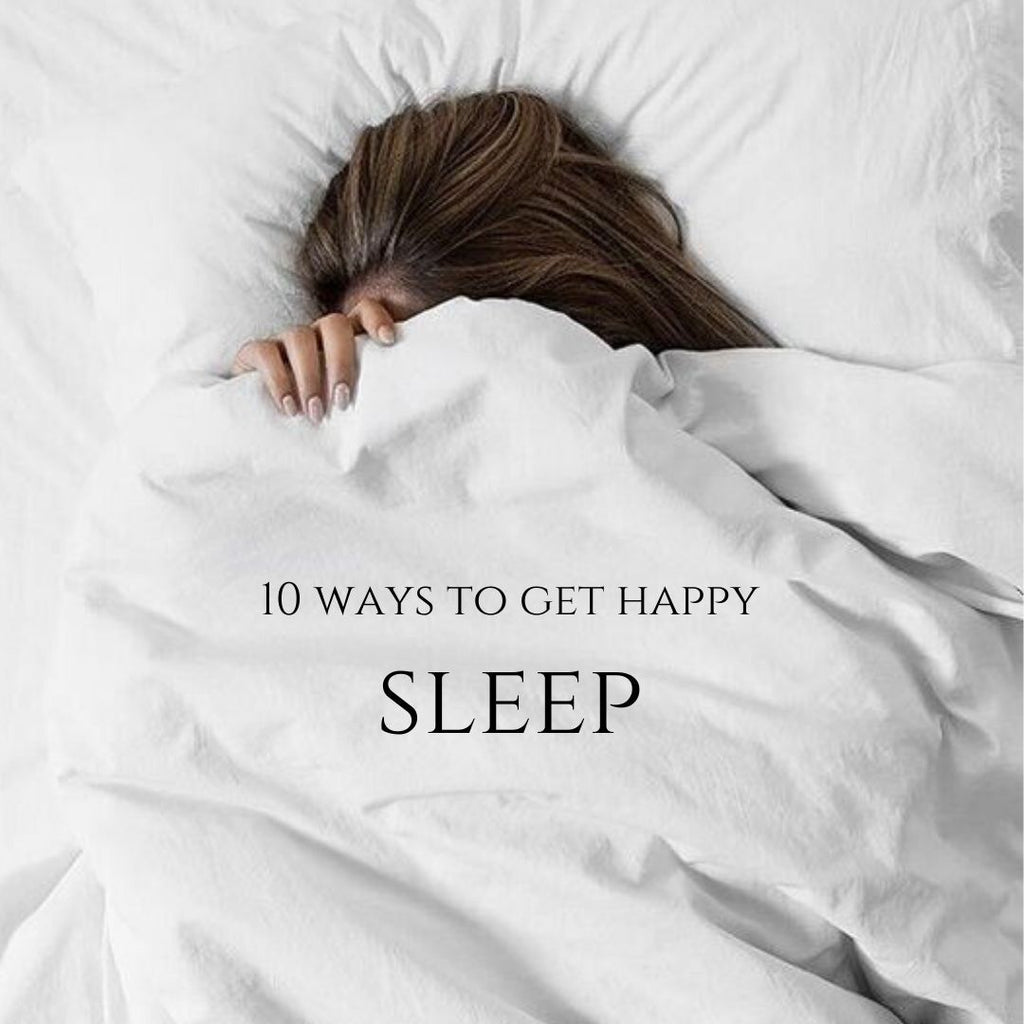Sleep Solves Everything: 10 ways to get Happy Sleep
In a previous life, I think I must have been a cat. Or maybe a giant armadillo! Did you know they sleep around 18 hours a day! To me that sounds like bliss! I love sleep. Especially in the winter, I love to hibernate. If only I could live by the day light hours!
However, in the way we live our lives today, that just isn’t possible. There is work, endless responsibilities and the latest Netflix release to watch. As work life balance and boundaries blur in to one, sleep becomes over-rated with phrases such as ‘I’ll sleep when I’m dead’! Some of us even wear our lack of sleep as a badge of honour, with workaholism causing a lack of sleep. Some fear getting the proper sleep also equates to not being passionate enough about the work we do and the life we lead.
And yet sleep is vital for our overall physical heath as our body rests and more importantly for our mental health. ‘There is no tissue within the body and no process within the brain that is not enhanced by sleep, or demonstrably impaired when you don't get enough’ - the words of a professor at the University of Berkeley. During our sleep, our body restores and repairs through a process called 'autophagy' where it clears up old cells and produces new ones. Scientists studying Alzhiemer's have seen that during sleep, our brain is 'washed' to remove waste products between our nerve cells. Sleep is vital for the proper function of our mind and body as well as it's ability to protect us from disease. A lack of sleep can reduce our insulin resistance, which longer term can lead to Type 2 diabetes.

How much sleep do you really need?
The current guidelines for sleep is between 7 and 8 hours. However, as I believe in bio-individuality (we are each unique beings and therefore one size does not fit all), only you can determine your required level of sleep for optimal physical, mental and emotional health.
What can you do to ensure you get enough good quality sleep for your body?
Here are my 10 top tips on how to get a good, quality night sleep and help you feel refreshed and vitalised!
1. Make a date with your bed!
Make it a luxurious and indulgent time that you look forward to; invest in lovely nightwear (I love https://aliceandastrid.com/), an eye mask, some candles or essential oils (my friend Jenny Roberts introduced me to DoTerra oils and they I love using a combination of lavendar, breathe and lemon each night in my diffuser and enjoy a beautiful sleep https://www.mydoterra.com/authenticallyjenny). Have a warm bath, journal out all your thoughts, count your blessings, read a fictional book. Let your brain and body know it is time to relax and unwind and get ready to sleep. Make it a 'date' that is non-negotiable and just as you set an alarm to get up, set one to go to bed.


Natural soy wax 100% pure essential oil candle and pure silk dressing gown, naturally cooling or warm and soothing to the touch available to buy at Alice & Astrid the perfect gift to yourself or a loved one.
2. Create the right environment
Allow your bedroom to be a bedroom - the place for sleep and intimacy. It is tempting to bring the TV into a bedroom but TV's also emit a blue light that will play havoc with your circadian rhythms. If you can't remove the TV, then at least allow yourself 30 minutes of screen free time before you turn out the light. Your bedroom should be a mobile free zone so buy an alarm clock! Phones on the bedside table are too tempting... It's time to shut down, not wake up. Emails and social media can wait!
3. Dark & Light
Find time every morning to soak up the sunshine or bathe yourself in natural daylight. This will not only help wellbeing during the day, but it will help promote good quality sleep at the end of the day. The morning light has a special wavelength which is crucial for our central body clock to perform correctly.
Towards the end of the day, start to turn down the artificial light in your home. Darkness will start to allow your brain to recognise it is time to wind down and prepare for sleep. To promote a good night sleep, ensure your bedroom is in complete darkness by having good fitting curtains or black out blinds.
Ali Mortimer- Heal yourself Happy
4. Be a Regular
Studies have shown that we get better sleep by going to bed at the same time and getting up at the same time every day. This is all linked to our internal body clock and circadian rhythms. If you go to bed late, you may find it tough if you have to get up at the same time, early in the morning. But see cat naps and micro-sleeps below!
5. Cat Nap & Micro-sleeps
Even the shortest of naps during the day can help us course correct with our lack of sleep. You only have to look at Winston Churchill who survived on very little sleep overnight, but who took 1-2 hours of naps during the day. These 'micro sleeps' have been associated with many benefits such as alertness, reaction times and logical reasoning. They can even boost our happiness.
6. Keep Cool
The ideal temperature for your body to get a good night sleep is 18C. Natural fibres for your bedding and nightwear will help with this and keep your room cool and / or a window open. Ideally, you should exercise early in the day, however, if this is not possible and you exercise in the evening, you will raise your core temperature and this can have an adverse effect on your sleep. The best way to lower this is to have a hot shower! This radiates all your heat out of your core and you cool down.
7. The Stimulant / Relaxant cycle
Caffeine is a stimulant and has a half life of 6 hours – so six hours after your cup of coffee, there is still half the amount in your bloodstream. Therefore, aim to reduce your consumption of caffeine during the day and limit it to before noon. Similarly, with alcohol, while you may find it a way to relax and lull you into sleep, it can disrupt the important parts of your sleep during the night. Sugary snacks before bed time will increase your blood sugar and therefore increase energy and disrupt your ability to unwind.
8. Food for Sleep
Eating a wide variety of whole foods, mainly plants and all macronutrients will ensure your body is able to perform all the functions it needs to while you sleep. To promote an even better sleep, then some foods have been proven to be even more beneficial, foods containing 'Tryptophan': an amino acid and the precursor to the hormones serotonin and melatonin, both important in the sleep cycle function. Foods high in tryptophan are Chicken, Turkey, Eggs, Nuts, Seeds, Dark Chocolate. Eat your last mouthful at least 2 hours before you sleep to allow food to digest rather than disrupt your sleep.
If you would like some recipe inspiration, then do follow me on social media (Instagram @heal_yourself_happy or Facebook @healyourselfhappywith ali) or sign up to get my weekly newsletters which always has a recipe here; Weekly Newsletter
9. Get a sleep buddy
Just as we find having an accountability buddy helps for what you eat and when and how often you exercise, you can get a sleep buddy too.
10. Breathe
If you find you have a 'busy' or 'racing' mind and it is preventing you from sleeping, you have tried journalling, but you still can't switch off, then breathing and meditation can help you move from out of your mind and in to your body. Try using a counting breathing technique or my a sleep meditation; you can download mine here: https://youtu.be/gOqnayvBklg

But what do you do when you can’t sleep?
If you have been lying awake for more than 30 minutes, get up. Walk around or go into another room; keep the lights low and read. If there is something on your mind, then this is a good time to journal or write out what is on your mind. By getting your thoughts on paper, your mind can then 'let go' knowing it will still be there in the morning. Only get back into bed when you are really sleepy. I often find a mantra or affirmation works magic. The words trigger my brain to switch off. My mantra is 'every day and in every way I get better and better.' I now only remember saying it once or twice and it is morning!
Working out your personal prescription for having a 'Happy Sleep' is just one of the steps in my signature 7 step framework to holistic health and happiness and thrive in life! If you would like to know more about how to have a Happy and Healthy life, take a look at the HYH Academy and the self-study or group coaching programme
- Self Study: Download the 7 step framework and go through each module at your own time, own pace and in your own time. There is no set agenda or time frame and the course will be available to you forever! You have access to me for support and guidance through the online programme as well as a private online community of other students and graduates of the Academy.
- Group Coaching: 3 times a year, in January, April and October, I take a small group of women through the 7 step framework over a 12 week programme with weekly calls to go through each module, set intentions and discuss progress. Once again, you have further access to me through the online programme and a private online community with your coaching group and the larger group too for support.
The results achieved through these programmes are truly magical!
You can find out more here: https://www.heal-yourself-happy.com/offers/Tf7cAhkL/checkout
or email me at ali@heal-yourself-happy.com if you have specific questions.
alzheimersautophagybio-individualitybreathingbreathing techniquescaffeinecat napfood for sleephappinesshappyhappysleephealinghealth coachholistic healthinsomniameditationmicrosleepquality sleeprestsleepsleep benefitssleep buddysleep debtsleepdebtsleeplessnessstimulanttryptophantype 2 diabeteswellness


